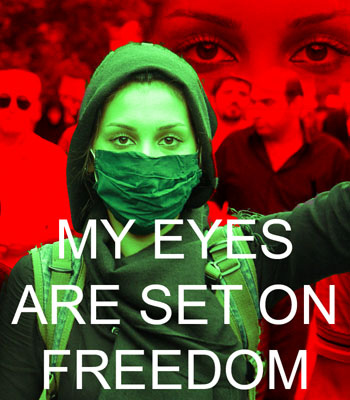Preventing disease and strengthening health system are key while we open up economies
BOBBY RAMAKANT - CNS
Although some parts of the world are reporting another rise in new COVID-19 infections, many countries are doing away with pandemic-related public health and social measures that were put in place over two years ago. Experts of Organized Medicine Academic Guild of India (OMAG) raised an alarm and called for layered safeguards with "One World One Health" approach while we rebuild a more equitable social and economic order for everyone.
SMSV is central cog in the wheel as we open up economies
During the recent and ongoing wave of COVID-19, nine out of every ten people who were hospitalised due to the corona virus, were unvaccinated. It is clear that vaccinations against COVID-19 helps reduce the risk of being hospitalised or dying if one gets infected with corona virus. Dr Ishwar Gilada, Secretary General of OMAG and noted infectious disease expert said in the recently concluded national conference of Indian Association of Paediatricians (PEDICON 2022) that SMSV (Social distancing, Masks, Sanitation, and Vaccination) approach is a central cog in the wheel as we open up social mixing and economic activities and relax COVID-19 protocols. "Around the world emerging data has demonstrated how vaccination has reduced hospitalizations and deaths. More than 90% of the hospitalizations due to the recent Omicron wave were among the unvaccinated," stressed Dr Ishwar Gilada.
Pandemic is not over: WHO
Agrees Dr Tedros Adhanom Ghebreyesus, Director General of the World Health Organization (WHO) who said before World TB Day that "After several weeks of declines, reported cases of COVID-19 are once again increasing globally, especially in parts of Asia. These increases are occurring despite reductions in testing in some countries, which means the cases we are seeing are just the tip of the iceberg, and we know that when cases increase, so do deaths. Continued local outbreaks and surges are to be expected, particularly in areas where measures to prevent transmission have been lifted. However, there are unacceptably high levels of mortality in many countries, especially where vaccination levels are low among susceptible populations. Each country is facing a different situation with different challenges but the pandemic is not over. I repeat, the pandemic is not over."
"We call on all countries to remain vigilant, continue to vaccinate, test, sequence, provide early care for patients, and apply common-sense public health measures to protect health workers and the public. We continue to call on everyone to be vaccinated, where vaccines are available, and we continue to work night and day to expand access to vaccines everywhere" added Dr Tedros of WHO.
Speaking on overcoming the waves of COVID-19 pandemic and vaccination strategies, Dr Gilada thanked the Govenrment of India's NTAGI (National Technical Advisory Group on Immunization) for accepting several of the science-backed and evidence-based suggestions made by OMAG, and the Ministry of Health and Family Welfare for implementing them.
Global health security is vital
While speaking on the vital role of professional medical organisations in pandemic times, OMAG President Dr Suneela Garg said that “the role of organized medicine is crucial for development of public health policies and practices. Global Health Security is one of the biggest challenges for a highly diverse and populous nation like India. Antimicrobial Resistance, TB, trauma, non-communicable and communicable diseases, emergencies and pandemics are few of the major challenges which need clinical, public health and social solutions.”
Dr Suneela Garg added that almost seven years ago, India and other countries globally had committed to deliver on the United Nations Sustainable Development Goals (SDGs) by 2030. SDGs recognize that global health security is an essential cog-in-the-wheel to sustainable development where “no one is left behind”, thereby recognizing the pivotal role of universal health coverage.
“Professional medical associations must come together to strengthen the public health services and help deliver on the overarching goal of Universal Health Coverage (UHC)”, she said. "One World One Health" must be the central theme for ensuring global health security, reiterated Dr Garg.
Dr Gilada said that high level of exposure to the corona virus, including Omicron, has led to development of natural immunity. Along with this, India’s vaccination coverage is protecting more than three-fourth of our population too. It is unlikely that a fourth wave of COVID-19 will hit the country like other nations that have already gone through several waves of the virus.
Dr Ishwar Gilada reiterated that the government may consider optimally and fully engaging professional associations like Indian Association of Paediatricians (IAP) and OMAG partners, nursing homes and clinics and other healthcare facilities which can play a catalytic role in accelerating vaccination programmes, especially for children and population sub-groups who are at higher risk of COVID-19, such as those living with HIV.
While India is rolling out the booster dose (precaution dose) and primary doses to those who are not fully vaccinated, it is prudent to invest in bridge studies to have more evidence of public health impact of further booster doses, or the need to lower dose of vaccine or combining different vaccine doses. We need to ensure that the COVID-19 response remains rooted in science and evidence, said Dr Gilada.
Fourth wave of COVID-19 less likely in India
Dr Gilada explained that fourth wave of COVID-19 is less likely in India. He said that majority of Indian population got exposed to COVID-19 in first two waves and remaining in third wave, as data shows that IgG antibody tests show around 90% positivity in different parts of the country.
Vaccination levels have also gone up in the past 15 months in India: 97% of adults have received the first dose, second dose got delayed though 83% are now fully vaccinated and its effect may last for 9-12 months. Booster or precaution dose is also being given to those eligible. Vaccination of children and adolescents is also being done. "So possibility of a fresh wave affecting a large population in India is low. Only new more serious variant can change that course," said Dr Gilada.
Less the virus circulates in human population, less is the chance of new variants. Breaking the chain of infection transmission remains centre-stage as pandemic response. SMSV is more important than ever before as we open up social mixing and economic activities, say experts.
Bobby Ramakant – CNS (Citizen News Service)
(Bobby Ramakant is part of CNS editorial team and was awarded the WHO Director General’s WNTD Award in 2008. Follow him on Twitter @BobbyRamakant)
Copyright mediaforfreedom.com


